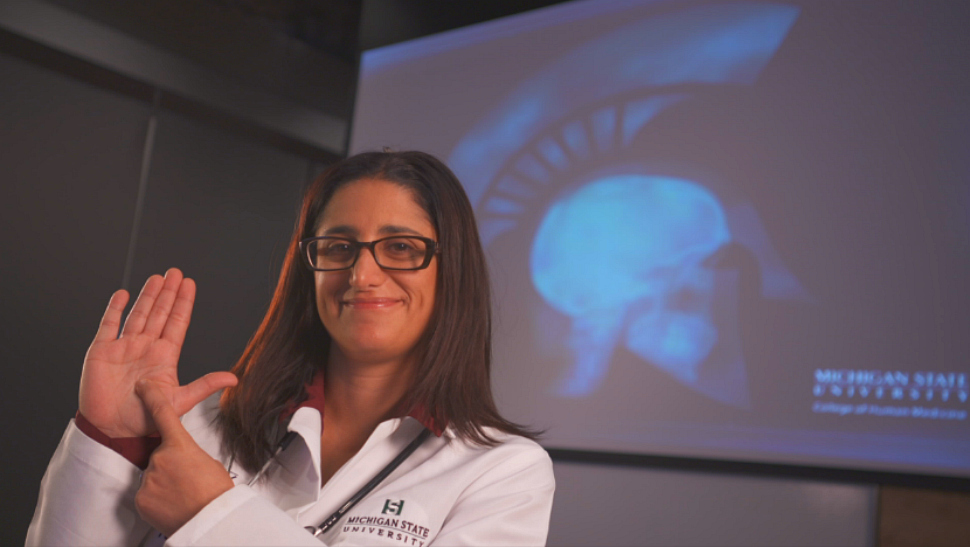John Tolley, January 21, 2017
Michigan State University pediatrician Dr. Mona Hanna-Attisha wants you to know the Flint Water Crisis isn?t over.
Yes, the quality of the city?s water has vastly improved, with lead levels below federal limits, but residents are still advised to use filters.
Moreover, the damage wrought by those previously elevated lead levels has been done. The youngest of Flint residents will bear the brunt of the effects as the potent and irreversible neurotoxic metal wreaks havoc on the developing mind. Lead impacts cognition, behavior, activity levels, attention, focus and IQ.
?I take care of these kids. These are my kids and this is my job,? says Dr. Mona, as she's known to Flint residents. ?This is a community that their concerns fell on deaf ears for about eighteen months. As a provider, as a researcher, as a clinician in this community, it is our role to use our scientific knowledge to advocate for the underserved.?
It was Dr. Mona, director of the MSU-Hurley Medical Center?s Pediatric Public Health Initiative, who first documented the rising lead levels in Flint?s children and linked it to a change in the city?s water supply. And, it was Dr. Mona who, with relentless vigor, led the charge to inform residents of the water crisis and to demand action from local and state officials.
The energy and passion she brought to her work on behalf of the children of Flint are what her colleague Dr. Aron Soussa refers to as her ?superpowers.?
?Mona keeps going,? says Soussa, Dean of Academic Affairs for the Michigan State University College of Human Medicine. ?When it didn?t look like she could get the data that she needed, she got it. When it looked like people were going to belittle her and stop her, she kept going. When it looked like government agencies were not going to come through, she kept going.?
Her tireless work has thrust her into the spotlight. She received the 2016 PEN America's Freedom of Expression Courage Award alongside Flint resident Lee-Anne Walters, and, that year, was named one of Time Magazine?s 100 Most Influential People.
But, for Dr. Mona, the work is hardly over. She continues to fight for the future of the children of Flint. To alleviate the effects of the lead poisoning, she is advocating for a suite of services that will meet their needs as they grow.
?We need the resources to surround these children to mitigate this exposure,? explains Dr. Mona. ?Donating to Flint Kids, our child health and development fund, will help us support early literacy programs and early intervention services and nutrition access and transportation services. This is not a throwaway city and these are not throwaway kids. If there ever was a time to invest in our children, it is now.?







 Watch multiple mats live Saturday from the Big Ten Wrestling Championships.
Watch multiple mats live Saturday from the Big Ten Wrestling Championships. 